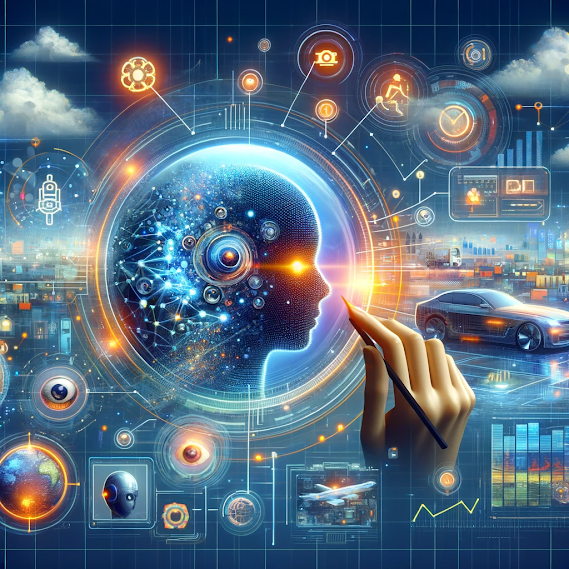The Future of Travel: Navigating Through the AI Revolution
The Future of Travel: Navigating Through the AI Revolution
AI's role in travel is multifaceted, addressing both operational efficiencies and enhancing customer experiences. For decades, AI has been instrumental in optimizing the scheduling of flights and the allocation of hotel rooms. Today, its capabilities are expanding into more complex areas like predictive analytics and personalized customer service, making travel more intuitive and enjoyable for consumers.
The Concept of "Revenge Travel"
The term "revenge travel" encapsulates the surge in travel activity as people eagerly make up for lost time due to the pandemic's restrictions. This resurgence is not just about increased bookings but also reflects a broader expectation among travelers for seamless and personalized experiences, areas where AI can play a significant role.
The Promise of Generative AI
Generative AI, or gen AI, is particularly significant for the travel industry. It simplifies the discovery process for travelers, helping them find destinations, accommodations, and activities that align perfectly with their preferences. This technology can generate itineraries and suggest activities in a way that feels personalized and intuitive, unlike the more generic results often returned by traditional search engines.
Operational Efficiency and Customer Satisfaction
AI's ability to enhance operational efficiency is profound. Airlines can use AI to ensure timely departures and manage logistics more effectively. Hotels can leverage AI to meet guest expectations more consistently, ensuring that the advertised experience matches the actual service provided. This operational agility helps in maintaining high levels of customer satisfaction and building brand loyalty.
The Intimacy of Travel and AI's Role
Travel is considered one of the most intimate sectors because of the personal experiences it offers. AI's ability to distill vast amounts of data into personalized experiences can make each journey unique and memorable. By understanding individual preferences and behaviors, AI can tailor travel experiences that feel bespoke and special, enhancing the magical aspect of travel.
AI and the Human Touch
Despite AI's advancements, the human element remains crucial in the travel industry. The best applications of AI in travel are those that enhance, rather than replace, human interactions. For instance, while AI can streamline check-ins and optimize itinerary planning, the personal touch provided by human service remains invaluable to creating a warm and welcoming experience for travelers.
Challenges and Opportunities
The implementation of AI in travel is not without its challenges. Data privacy concerns, the need for sophisticated infrastructure, and the risk of over-reliance on technology are significant hurdles. However, these challenges also present opportunities for innovation and improvement. Companies that navigate these waters successfully are likely to emerge as leaders in the new era of travel.
The Future of AI in Travel
Looking ahead, the potential of AI in the travel industry is boundless. From virtual reality experiences that complement physical travel to advanced analytics that predict travel trends, AI is set to become an indispensable part of the travel landscape. It offers the promise of making travel more sustainable, efficient, and personalized, aligning with the evolving preferences of modern travelers.
As AI continues to evolve, its integration into the travel sector promises to redefine how we explore and experience the world. The insights from experts like Alex Cosmas and Vik Krishnan highlight both the transformative potential of AI in travel and the importance of balancing technology with the human elements that make travel deeply personal and meaningful. The journey of integrating AI into travel is just beginning, and it holds the promise of making the world more accessible and enjoyable for all travelers.


.jpeg)


Comments
Post a Comment